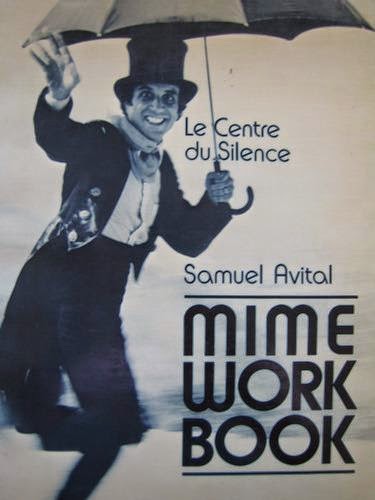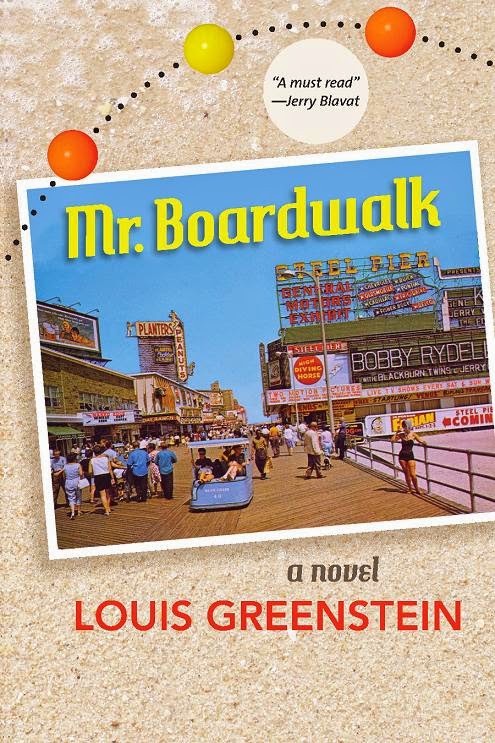Today’s Wednesday’s Guest is Louis Greenstein who has stopped by to share the three things he learned about writing from his day jobs. All of us who pursue creative endeavors of any kind have probably worked at other jobs to supplement a sometimes meager income from the job we love most. Sometimes it is good to look back and reflect on what those experiences have taught us. For refreshments today, I thought a soft pretzel would be perfect since it was these hand-made pretzels that sent Jason on his Atlantic City odyssey in Greenstein’s book, Mr. Boardwalk that I reviewed here on Sunday. Grab one and your beverage of choice – mine is ginger-lemon sun tea – and enjoy….
 |
| Image Courtesy of the Baltimore Sun and Aunt Anne’s Hand Rolled Pretzels |
I’m fortunate to earn a living exclusively from writing and editing. While most of my income is derived
through commercial work such as ghostwriting books about management and working for business publishers as a freelance “manuscript doctor,” I also get to work on my fiction without having to squeeze in “creative writing time.” Creative writing is part of my workday—and I work at it every day.
Like most full-time writers, I haven’t always earned a living from my craft. I had a string of “day jobs” ranging from monotonous and low paying to exciting and lucrative. I’ve been a house painter, groundskeeper, antiques dealer, street performer, youth counselor, business executive, short order cook and more. All that, except being a street performer, may seem irrelevant to Mr. Boardwalk, my novel about a boy juggler in Atlantic City. Actually, though, I learned something valuable about writing from every job I ever had.
With that in mind, here are the top three lessons I learned about writing from my day jobs:
1. Use words sparingly. I am a recovering mime. If you’re a young person, please understand that back in the 1970s, for about twenty minutes, mime was popular in America. As a trained mime who performed on street corners, at theaters and in schools, I apply today what I learned 30+ years ago in mime school: the value of silence and the economy of words. “Less is more” is key whether you are communicating with words or without.
When I was training under Samuel Avital at the legendary Le Centre du Silence in Boulder, Colorado, I had to choose one day a week to “fast from words.” I happened to meet the poet Allen Ginsberg on one of my “Silent Days.” He was doing a book signing at the Boulder Bookstore. I handed him my copy of Howl, but I didn’t speak. “What kind of idiot is this?” you might suppose he thought, but in fact he was impressed by my silence. When we bumped into each other a few times over the next year or two, he remembered me. Nothing I could have said would have made an impression on the man. It was what I didn’t say that made me memorable.
2. Probe for details. As a market researcher, I learned how to conduct interviews that began like this: “This is Mr. Greenstein calling from Chilton Research Services in Radnor, Pennsylvania. We’re speaking with a cross section of homeowners across the country about roofing services.”
Sounds pretty dull, right? But after the scripted parts, I got a chance to probe, asking people to tell me more about their thoughts or give me examples. That turned out to be important training. Knowing how to probe deep down for information is essential for my work as a fiction writer. If you are creating a character, you had better be able to answer plenty of questions about him or her. You’d better know more about a character’s motivations than you reveal in the story. I don’t know any other way to create a character than to ask a lot of questions, probing for hidden truths.
3. Know your characters. For several years in the 1990s, I owned and operated a career counseling and résumé writing service in Philadelphia. Résumé writing further reinforced the importance of knowing each and every character—major or minor—inside out, so that their actions make sense in the universe that is the novel, story or play. As a fiction writer, you should be able to construct each of your characters’ résumés—employment, education, interests and professional associations—regardless of whether their job histories are mentioned in the story.
Some people say that good writing can’t be taught. Maybe, but I know from my own experiences that it can be learned.
~~~~~~~~~~~~~~
ABOUT THE AUTHOR: Louis Greenstein’s writing has crossed multiple genres, from scripts for the Emmy Award-winning Nickelodeon series RUGRATS to stage plays performed by theaters around the country. Several of his plays are available in print, and his playwriting has been honored with a fellowship from the Pennsylvania Council on the Arts. His musical show ONECHILD BORN: THE MUSIC OF LAURA NYRO, co-written with performer Kate Ferber, travels to multiple venues in New York City and elsewhere. MR. BOARDWALK is his first novel.




“Some people say that good writing can’t be taught. Maybe, but I know from my own experiences that it can be learned.”
No truer words have I ever read on writing.
I used to tell my history classes that history had to often be learned, again.
Good writing may not be able to be taught – but it is possible to point out bad habits and possible alternatives.
Some of us do this from books; others have critique groups or teachers.
I’ve learned a lot from letting simple programs count how many times I use each word – it’s almost a game to see if I can get through a scene without cliches or repetitions of four-word phrases.
Creativity is great, but a solid underpinning of craft CAN be learned.
Nice post – using all your background to give richness to your writing.
Alicia
Thanks for stopping by Neil. Good point about history having to be learned again. To use one of those cliches Alicia mentioned, “history often repeats itself.” As a history teacher, I’m sure you share my dismay that the lesson is not learned and carried on.
I, too, agree about the craft of writing being something that can be learned, and it can be taught as well. I learned so much from the graduate creative writing class I was able to audit one year. Even though I was not officially taking the class, the prof took an interest in me and my work and helped me transition from nonfiction writing to fiction.